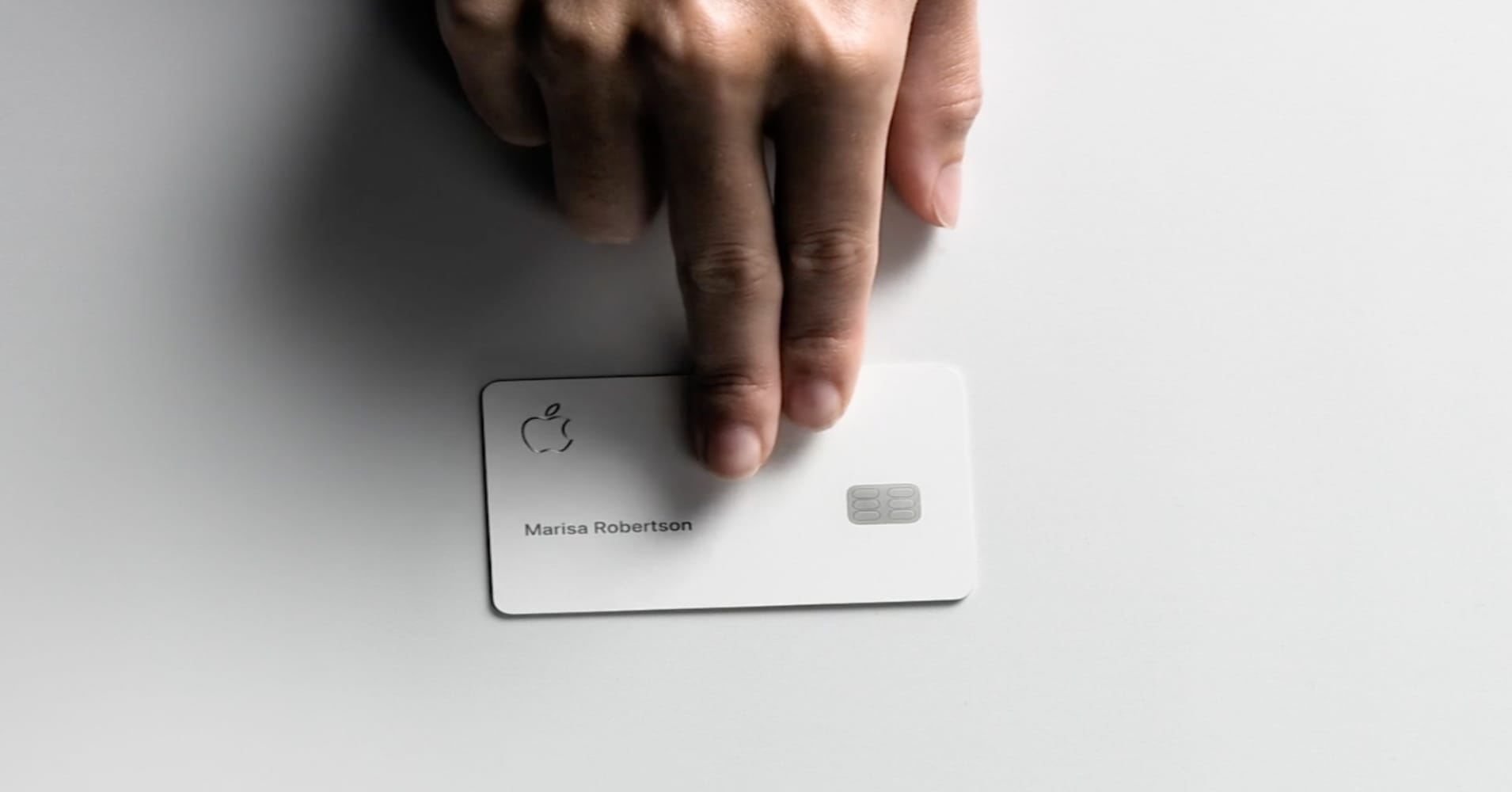Apple's new credit card holds a lot of promise, but read the fine print before signing up

Apple announced a new credit card issued in conjunction with Goldman Sachs at a launch event at its campus on Monday. Apple is promoting it as a simpler credit card, with no fees, powerful integration with iPhone spending tools and attractive rewards when customers use Apple Pay, Apple's digital wallet.
But the company glossed over many critical details, including interest rates and who will qualify. In fact, people with bad credit might not even be eligible for Apple Card.
CNBC read through the fine print and asked some experts to weigh in. Here's what you need to know.
Like other credit cards, the Apple Card has a high interest rate for people who carry a balance. Apple said that users will pay an APR between 13.24% and 24.24%, based on individual credit scores.
That's a wider range than most cards have, CreditCards.com industry analyst Ted Rossman said.
For people with great credit scores, Apple could be a good deal.
"On the low end, meaning people with better credit, Apple's interest rate is significantly lower than the national average," which was 17.67%, according to a CreditCards.com survey.
The high-end rate suggests that Apple will make its card widely available, but will significantly raise rates for people with bad credit, Rossman suggested.
"I think people in the low to mid-600 range will probably quality for the card," Rossman said. "If your score is so low you're probably not going to get any cards at all. But among people who can get cards, I think this card will be pretty widely available."
An Apple representative declined to comment on a credit score cutoff for Apple Card. Apple said on Monday that its goal is to "provide interest rates that are among the lowest in the industry" and that it wanted to make the Apple Card available to the largest number of people possible.
While the Apple Card doesn't have an annual membership fee, there are some fees for certain transactions through its Apple Pay Cash service.
Apple Pay Cash is the service that allows people to send digital money to other iPhone users. It competes directly with PayPal's Venmo and Square Cash.
The two services are closely linked. Rewards from the Apple Card are paid through the Apple Pay Cash account, for example.
Apple will charge a 1 percent fee to make an instantaneous transfer from an Apple Pay Cash balance to a debit card, maxing out at $10, although direct bank transfers are free. This means that while Apple Card doesn't have fees, some of Apple's associated services might have one.
Another key selling point of the Apple Card is the iPhone giant's reputation for security. Apple spent significant time on Monday positioning Apple Card as more secure than other credit cards and created a specific web page on the Apple Card site to promote the security and privacy features of the card.
The physical version of the Apple Card is titanium and laser-etched with the user's name -- but it doesn't have any numbers on it, which Apple argues makes it more secure.
The idea is that if your card is physically stolen or someone can take a picture of the front or back, the thief can't use it.
"Your Apple card is more secure than others, it has no card number, no CVV, no expiration and no signature," Apple Pay VP Jennifer Bailey emphazied on Monday.
The Better Business Bureau tracks credit card scams, and spokesperson Katherine Hutt generally agrees the lack of numbers is a good thing.
"In a typical scenario, if someone finds your wallet, they go online and buy a large item with your credit card immediately before you cancel," Hutt said. "Without numbers, they can't do it."
However, Hutt warned, other scenarios are increasingly common, and Apple Card holders shouldn't be lulled into a false sense of security.
"Scammers have much more efficient ways of breaching your credit card and getting your data," such as guessing weak passwords, or "phishing" calls pretending to be from the user's bank and asking them for their passwords.
"The bigger issue will be making sure that their phone is secure. Passwords need to be unique and strong."
Subscribe to CNBC on YouTube.
Read More
Sem comentários